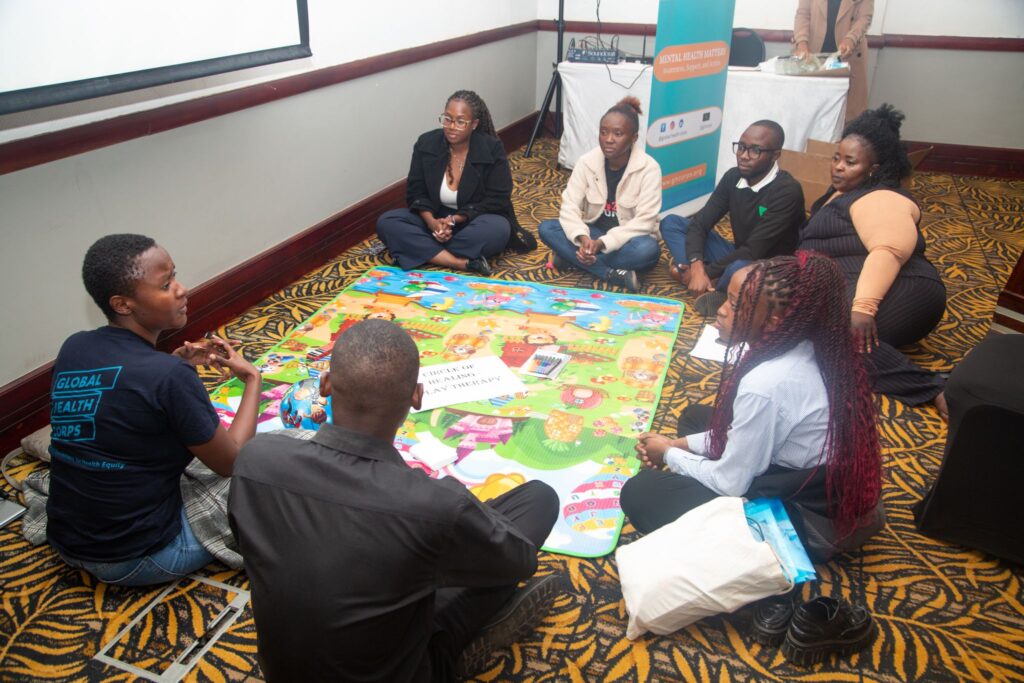On June 14th, the Global Health Corps (GHC) Zambia alumni chapter hosted the third annual Mental Health Symposium—an event that’s quickly becoming a cornerstone of youth-led advocacy in Zambia. With each passing year, the symposium grows louder, more intentional, and more deeply rooted in the urgent call to prioritize mental health as an essential part of overall well-being.
This year’s gathering brought together alumni, policymakers, community leaders, and youth advocates committed to breaking the silence around mental health. It was a space where personal experience met public policy, where healing met advocacy, and where the next generation of health leaders took center stage.
The keynote address, delivered on behalf of Zambia’s Ministry of Health Permanent Secretary Dr. Kennedy Lishimpi, highlighted the government’s growing commitment to mental health, including recent steps to integrate mental health into broader health system priorities. One powerful outcome of the day’s discussions: the creation of a communique and call to action that will be formally presented to the Ministry of Health for policy consideration and implementation.
The symposium was marked by a range of powerful, participatory sessions. Together, alumni challenged long-held myths—like the idea that mental illness is always spiritual in nature, or that suffering is always visible—and uplifted truth: there is no health without mental health.
Notably, attendees celebrated signs of progress, including the establishment of a mental health department within the Zambia Police Service. This institutional shift signals growing recognition of mental wellness as a national priority.

The event was spearheaded by the Zambia GHC Alumni Chapter under the leadership of Chapter President Natasha Chikalipa Bwanga. Events like these exemplify the spirit of the GHC community: bold, equity-driven, and solutions-focused. In partnership with the Ministry of Health and a growing coalition of allies, GHC Zambia alumni are pushing for systems-level change, ensuring that seeking mental health care is seen not as weakness, but as strength.
This annual symposium isn’t just a one-day event. It’s a movement. And it’s powered by a community of alumni who know that building stronger, more just health systems starts with brave conversations, bold leadership, and the belief that everyone deserves to feel whole.
